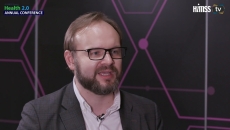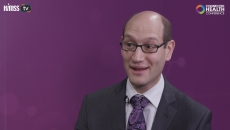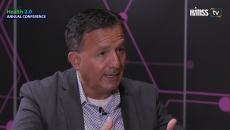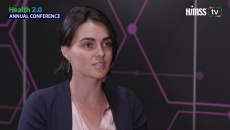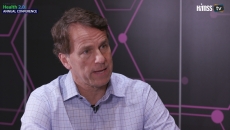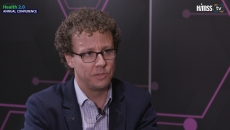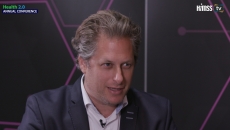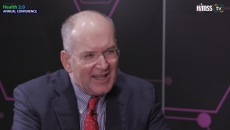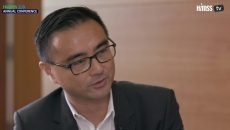Health 2.0 2019
Yauheni Solad, medical director of digital health at Yale New Haven Health, says creating a robust API infrastructure - a living system where everything is connected so data is available for decision-making – is the current goal.
Rob Lieberthal, principal of health economics at Mitre, says among the biggest obstacles to reimbursement are the lack of interoperability and patients not owning their data.
Ada Health Chief Commercial Officer Jeff Cutler says the company's chatbot came about because 80% of people search for health online but many lack provider access.
Orbita SVP and VP Kristi Ebong details how conversational AI can dynamically respond to and serve patients across the tech literacy spectrum.
It’s important to collect the right data for the right purpose, and patients should be rewarded for sharing their data, says Health Enovation CEO Grace Lee.
Glen Tullman, founder and chairman of Livongo, says his company aggregates and analyzes information to generate insights that could make it easier for individuals to stay healthy.
Dr. Tim Mercer, director of global health of Dell Medical School at the University of Texas at Austin, says don't take anything for granted when treating homeless and other underserved individuals.
Gyant's AI platform can help physicians perform tasks only they can do, thus improving workflow, says CEO Pascal Zuta.
The 21st Century Cures Act is providing opportunities for health tech startups, says Dr. Donald Rucker, chief of the Office of the National Coordinator for Healthcare Information Technology.
Partners HealthCare Director of Research Dr. Adrian Zai says providers must align resources and optimize technology around workflows, not the other way around.
